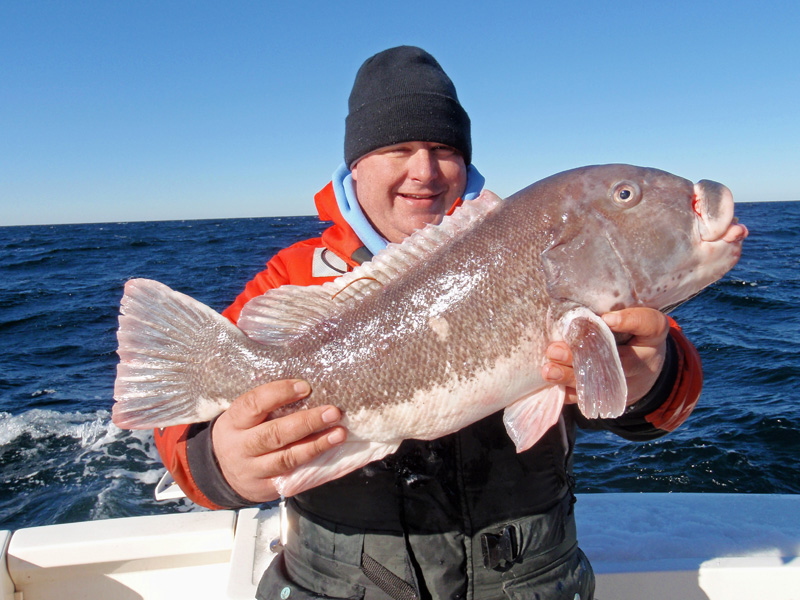Winter is the worst time for outdoors folks
Winter is the worst time for outdoors folks in Delaware. First of all, it’s cold, so time spent outdoors requires a considerable amount of clothing. I much prefer a pair of shorts, a T-shirt and boat shoes, but in the winter it’s several layers of heavy shirts, underwear, and jeans, and that is all covered in Gore-Tex or Grundens and finished off with deck boots or clunky hunting boots. The final outfit depends on whether you are hunting or fishing.
There are two firearm deer seasons in January. Shotgun season runs Jan. 16-24 and muzzleloader runs Jan. 25-31. Archery season is open until Jan. 31. Waterfowl seasons are a bit more complicated and require a study of the regulations in the Delaware Hunting and Trapping Guide.
As for fishing, tog are the primary target for saltwater anglers, unless the rockfish decide to camp out along our coast into January. That is unlikely, but possible.
Tog are contrary fish. One day they will feed like they are starving to death and then the next day you can’t buy a bite. Heck, I have had them turn on and off on the same tide.
The latest thing in tog fishing is the jig. This is a lead head with a flat bottom so it lays with the hook pointed up. You bait it with a green crab or sand flea and fish with your line at a 90-degree angle to the water. The folks who have success with a tog jig use lighter tackle than we would normally use for tog. Some go to spinning gear while I will stay with my Tsunami HYBRID reel on a Tsunami Classic 7-foot-6-inch rod. Tsunami also produces a line of tog jigs.
Finding a boat to fish from can be a problem in the winter. There will be a few boats running from Indian River and Ocean City, but they are usually booked. If you have a party that wants to fish tog, get them together, get their money up front, then start calling around or go online and find an open boat. Book at least three dates due to the weather.
Then you have freshwater. Delaware is blessed with some excellent freshwater fishing and it is always available because the fish can’t go anywhere else. No three-mile limit, no migratory schools, no wintering over on the Continental Shelf. Those bass, pickerel, perch, sunfish and whatever else is in the ponds or upper reaches of the tidal creeks and river are there to stay. This is another good reason to play catch-and-release with these fish.
Being a creature of the tides, I like to fish spillways or along the banks of those tidal creeks and rivers. The spillway in Milton and the head of the Broadkill River are two of my go-to locations in the winter. Both are close to home and have easy access.
I have caught white and yellow perch, largemouth bass and sunfish here. Earthworms are the primary bait.
I know I have said this before, but there is some sort of fishing facility close to where you live. Being in Delaware, we will have warm days during the winter when you can get out and do some fishing at one of these locations. If nothing else, you will get some fresh air, maybe catch a fish and generally clear your mind for a little while.
Bluefish regulations
Our friends at NOAA along with the Mid-Atlantic Fishery Management Council and the Atlantic States Marine Fisheries Commission have decided on the allocation of bluefish between the recreational and commercial sectors. There will be a reduction of 1.14 million pounds of bluefish in the recreational sector due to higher-than-projected recreational discards in 2019.
How, you may ask, do they know the number of fish the recreational sector discarded? Well, they don’t know exactly. They have to estimate using the numbers they generate from the Marine Recreational Information Program. We already know those numbers are bogus because we have seen them from previous years and they are ridiculous. However, the regulators keep using them as if they were proven science.
Fortunately, this reduction will not change the recreational regulations. They will remain three bluefish a day for private anglers with five per day for those who pay to fish on charter or head boats.
This trend of giving more fish to anglers on for-hire boats is very bad. It divides the recreational fishing community, and that can only make it harder for us to speak with one voice. I attend most of the hearings on fishery regulations, and only a few recreational fishermen join me. Those who do are charter or head boat operators.






















































